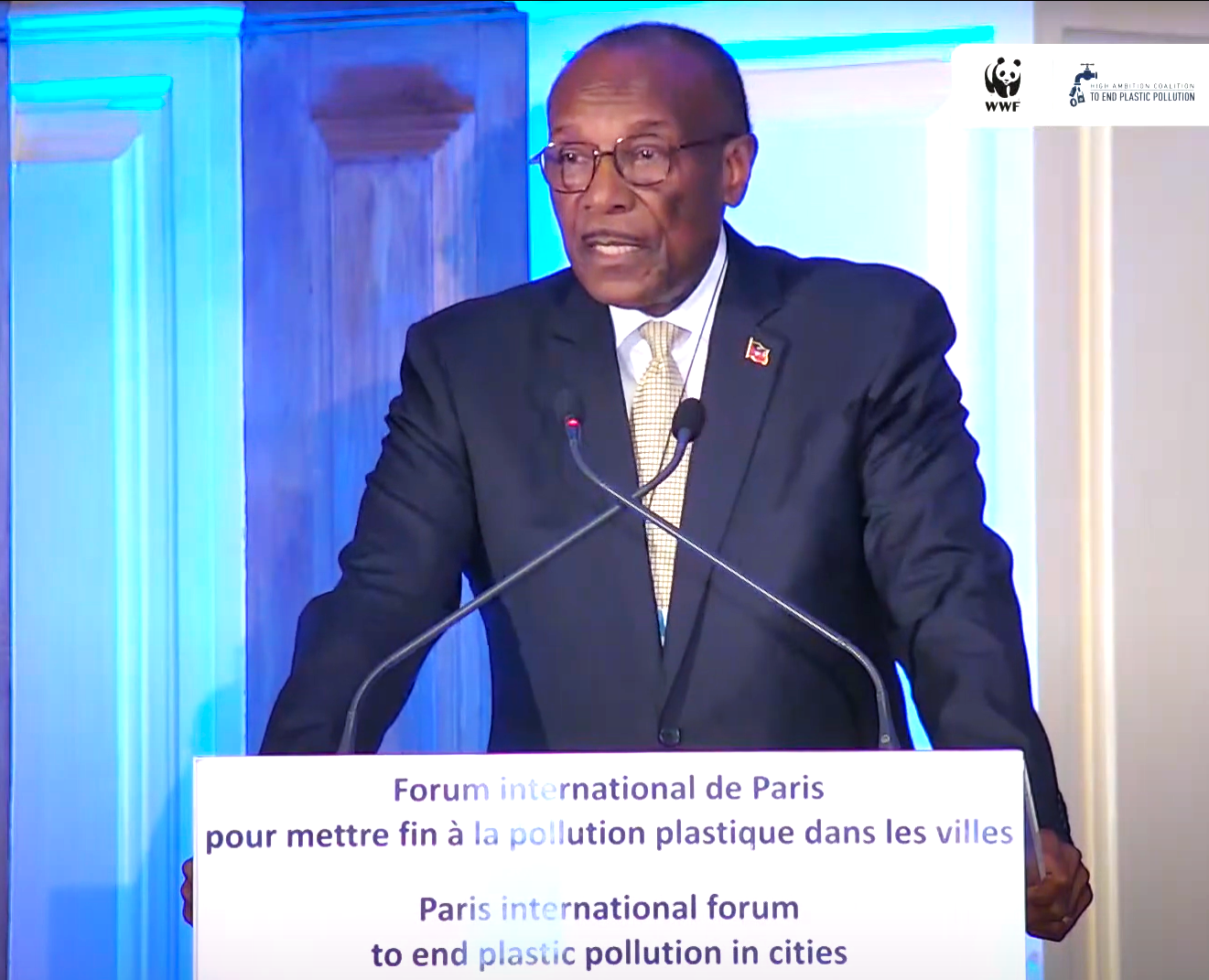Minister of Health and the Environment, Sir Molwyn Joseph, is strengthening his call
for earnest action by all governments and stakeholders in ridding the climate of plastic
pollution, which persists as a grave threat to marine ecosystems throughout the region
and across the globe.
Sir Molwyn made the plea while delivering a national statement to the second session
of the Intergovernmental Negotiating Committee (INC-2), which was established by
way of a resolution at the United Nations Environment Assembly last year, to create a
legally binding instrument that will see the end of plastic pollution by 2024.
“This growth in the use of plastics has caused catastrophic problems in our marine
ecosystems and human and environmental health, due to the resulting plastic
pollution,” Sir Molwyn told Government leaders, policymakers and experts gathered
in France for the meeting.
Sir Molwyn followed up an eight-point strategy that he shared with the 54 th Ministerial
meeting of the High Ambition Coalition to End Plastic Pollution with a thorough
examination of key categories that he proposes for consideration, in limiting the
negative impacts of plastics.
One such strategy seeks to devise and adopt solutions that promote a circular
economy in preference to the traditional linear approach that dispels a “take-make-
dispose” approach.
Waste management, Sir Molwyn noted, is another major category with which small
islands like Antigua and Barbuda struggle, but crucial in mitigating public health risk
while sustaining economic activity and enhancing public welfare.
“Waste management, however, is one of the least recognised and invested sectors
worldwide,” Sir Molwyn lamented.
He further underscored his government’s commitment to the creation and adoption
of legislation and the utilisation of new technologies for waste management and
prioritising plastic products that are likely to end up as pollution.
Sir Molwyn further noted that while recycling has proven effective, it only goes so far
and requires other approaches, actions, and measures across the lifecycle of plastics in
stemming the tide.
Among the measures he calls for are “scaled-up regulations that curtail the flow of
plastic debris reaching our Caribbean Sea and wider Caribbean region to ensure that
noncompliance and traceability mechanisms are implemented.”
The Environment Minister also underscored the need for public/private sector
partnerships in strengthening the implementation of policies and legislation.
Sir Molwyn anticipates that a draft treaty, on the condition of the full and involved
cooperation of all participating delegations, will be ready for the next
Intergovernmental Negotiation Committee meeting as the work of the body advances
in ending plastic pollution by 2024.


